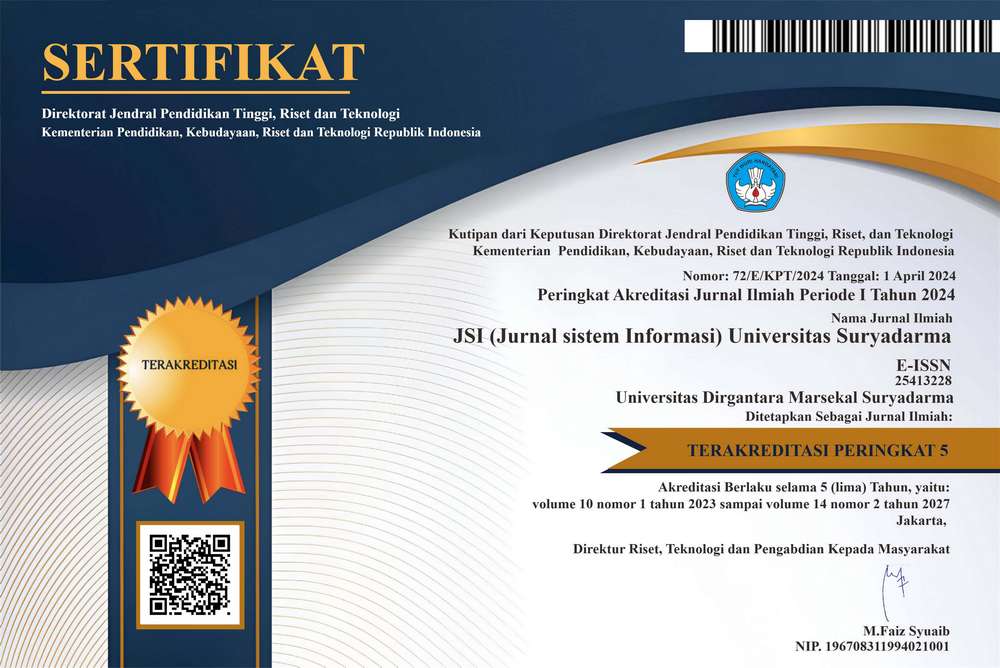TANTANGAN PENYELENGGARAAN E-VOTING: ISU KEPERCAYAAN PUBLIK DAN INTEGRITAS PEMILU
DOI:
https://doi.org/10.35968/jsi.v11i2.1247Abstract
Intellectual and also political discourse about e-voting has attracted people, but its intensity fell down recently. Many countries of the world, especially new democracies, have adopted the technology which Indonesia could learn from. In fact, alongside some technical preparation, there are many aspects, like socio-political and socio-cultural one, that need to be considered before adopting the system. If Indonesia want to adopt the e-voting technology in a near future, it should be remembered that we cannot disregard integrity of election management for the sake of efficiency.ÂReferences
Alvarez, R Michael, Gabriel Katz, dan Julia Pomares. 2011. The Impact of New Technologies on Voter Confidence in Latin America: Evidence from E-Voting Experiments in Argentina and Colombia. Journal of Information Technology and Politics 8(2): 199-217.
Avgerou, Chrisanthi, Andrea Ganzaroli, Angeliki Poulymenakou, dan Nicolau Reinhard. 2009. Interpreting the Trustworthiness of Government Mediated by Information and Communication Technology: Lessons from Electronic Voting in Brazil. Information Technology for Development 15(2): 133-148.
Choi, Jin-Wook. 2006. Deliberative Democracy, Rational Participation and e-Voting in South Korea. Asian Journal of Political Science 14(1): 64-81.
Hadayani, Heidira dan Felice Valeria. 2020. Covid-19 dan Kesenjangan Digital dalam sektor Pendidikan. Yogyakarta: Center for Digital Society.
Hague, Rod, Martin Harrop, dan John McCormick. 2016 (10th edition). Comparative Government and Politics. London dan New York: Palgrave Macmillan.
Heywood, Andrew. 2015 (2nd edition). Key Concepts in Politics and International Relations. London dan New York: Palgrave Macmillan.
Heywood, Andrew. 2023 (5th edition). Political Theory: An Introduction. London: Bloomsbury Publishing.
Industri Telekomunikasi Indonesia. E-voting. https://www.inti.co.id/?p=5848 diakses 26/5/2024.
International IDEA. 2011. Memperkenalkan Pemilihan Elektronik: Pertimbangan Esensial. Canberra: Program Asia dan Pasifik International IDEA.
Krivonosova, Iuliia. 2022. The Forgotten Election Administrator of Internet Voting: Lessons from Estonia. Policy Studies 43(6): 1254-1276.
Manin, Bernard, Adam Przeworski, dan Susan C Stokes. 1999. Democracy, Accountability, and Representation. Cambridge: Cambridge University Press.
Powell Jr, G Bingham. 2000. Elections as Instruments of Democracy: Majoritarian and Proportional Visions. New Haven: Yale University Press.
Smith, Rodney. 2016. Confidence in Paper-based and Electronic Voting Channels: Evidence from Australia. Australian Journal of Political Science 51(1): 68-85.
Stein, Robert M dan Greg Vonnahme. 2012. When, Where, and How We Vote: Does It Matter?. Social Science Quarterly 93(3): 692-712.
Xenakis, Aleksandros dan Ann Macintosh. 2004. Major Issues in Electronic Voting in the Context of UK Pilots. Journal of E Government. 1(1): 53-74.












